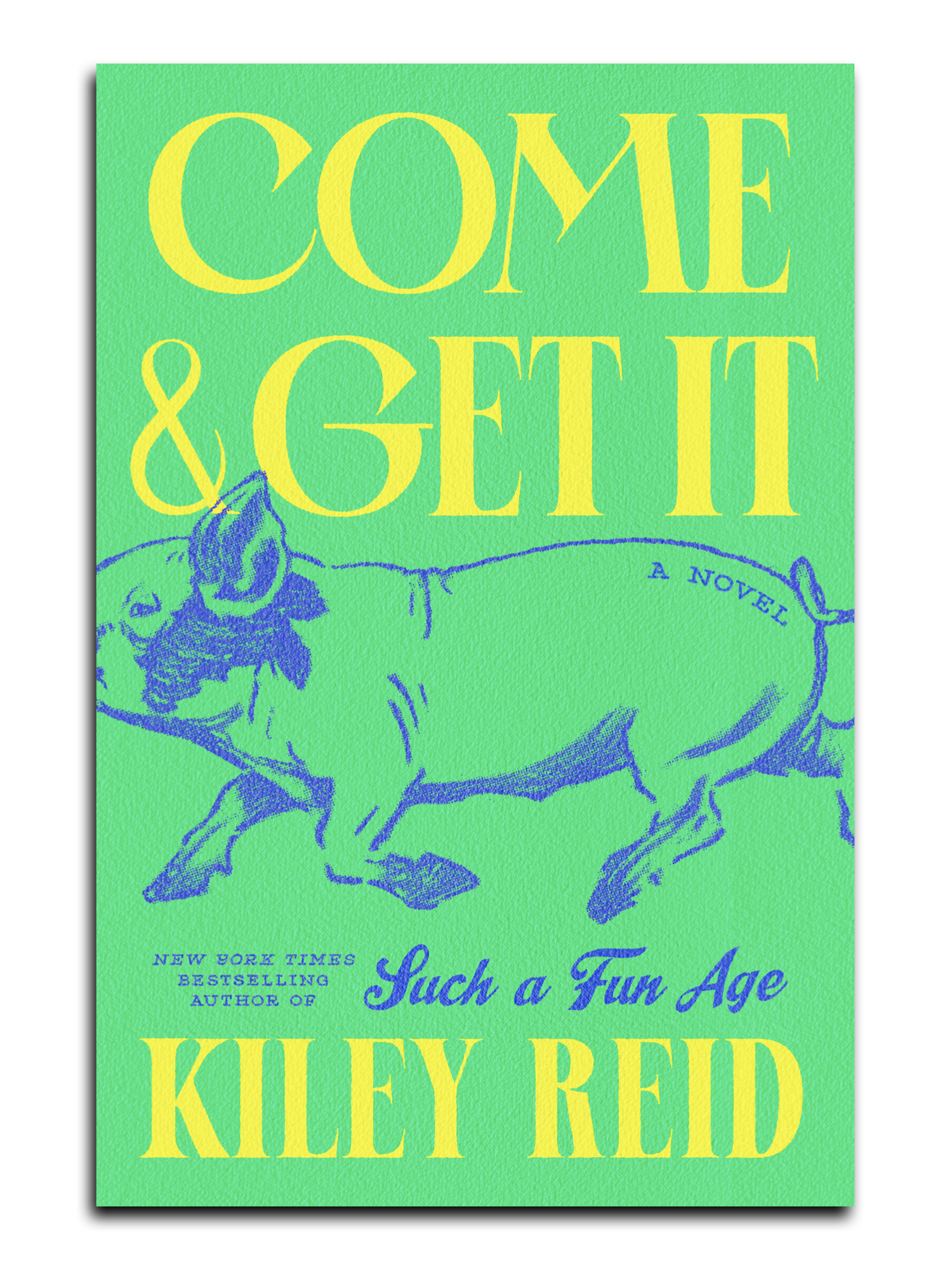Come and Get It by Kiley Reid
While I really liked Reid's debut hit, Such a Fun Age, her newest offering doesn't strike the same notes or sing in the same octave. Come and Get It seeks to offer a satirical take on wealth, affluence, and the pursuit of success. While timely racial topics come into play, Reid doesn't offer them up with the same pointed meanings as in her previous book, allowing them to simply flit in and out of the narrative.
In 2017, at the University of Arkansas, Millie Cousins, a senior resident assistant, seizes an unconventional (and potentially problematic) opportunity offered by visiting professor Agatha Paul, hoping to secure her future. However, her pursuit is complicated by her new friends, dormitory pranks, an oddball scandal, and an event that borders on hijinks.
Almost from the outset, which was clunky and posed a flow that only served to interrupt itself, there was a quality of the style that was difficult to name...a choice of Reid's that I couldn't quite put my finger on, but which perpetually halted the forward motion of the story and made it difficult to read at a steady pace. Instead I found myself having to shutter through the beginning in a nearly word-for-word fashion.
If I look at Reid's characters from a short, summarized description, they look enjoyable and interesting. But within the story, Reid built her characters based on things they wear or own that would define them. As satires go, that's pretty standard, but instead of working it more organically into the story, the delivery instead reads like lists of things, clothes, and identifying objects. It's the kind of commentary you can have with a close friend with whom you’ve invented this almost secondary language, that you two alone can speak. Outside of that relationship, no one knows what you're talking about or cares to remain engaged long enough to decipher any meaning. Additionally, and maybe most simplistically, the sentences were so short. With every new character — and there are many — this resulted in a sort of visual assault. Introducing people into the narrative was like a quickly administered report on a suspect whose only crime was to be heretofore unknown.
"Robin was twenty-eight years old. She'd graduated from Fordham University and she'd been dancing since she was three. She was from Chicago where her mother, her brother, his wife, and their child also lived. They all convened every other Sunday in the house where she grew up. She was funny and direct. She owned approximately thirteen small duffel bags, each filled with clothes, half-soles, Tiger Balm, and tape."
Reid's satire teetered between farcical and boring — the latter of which was largely due to the style in which it was written. She neither went hard enough into the satire nor wrote in a way to accommodate the irony. Ultimately, I thought her message, presuming it was there, got lost along the way. While I will see what she does next, I'd have to stick with recommending her debut instead.
I received this book for free from the publisher via NetGalley in exchange for an honest review. This affected neither my opinion of the book nor the content of my review.

